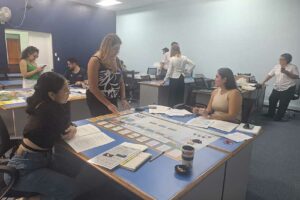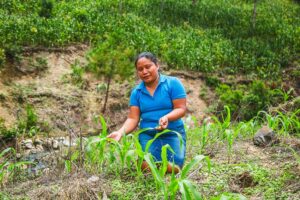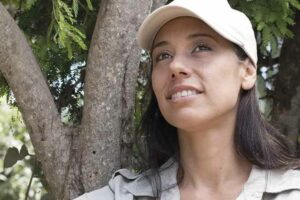CIENPINOS Studies and Designs Value Chains for Goat and Pig Production Systems in Cuba
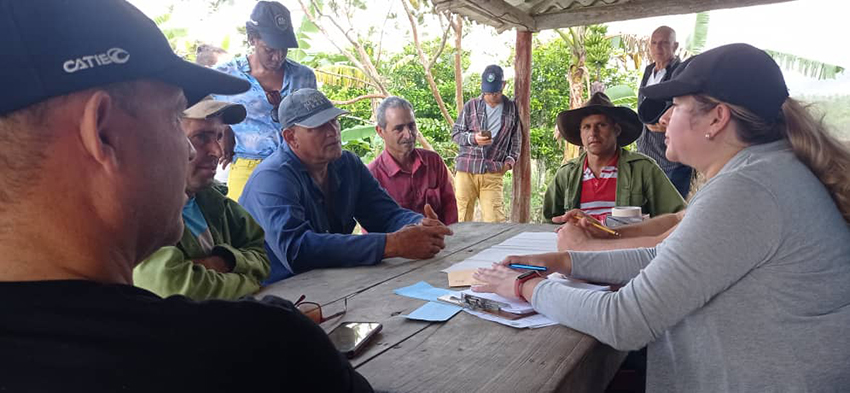
- The project, implemented by CATIE, aims to promote and enhance the production systems of acorn-fed pigs and goats, boosting the development of agribusinesses that involve producer families, entrepreneurs, and small business owners in Pinar del Río and Cienfuegos.
With the study of the value chains of acorn-fed pigs in Pinar del Río (Viñales and La Palma) and Creole goats in Cienfuegos (Cumanayagua), the practical-demonstrative workshops of the CIENPINOS project began in March: Municipal Climate Governance and Sustainable Agroforestry Food Production with Low Emissions and Adapted to Climate Change in Cienfuegos and Pinar del Río, Cuba. The project is implemented by CATIE (Tropical Agricultural Research and Higher Education Center) and the Indio Hatuey Experimental Station.
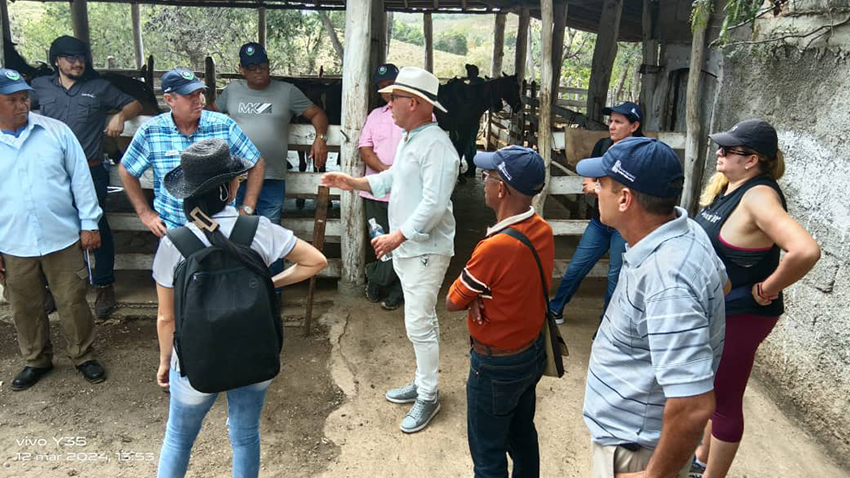
The theoretical sessions, designed as group dynamics, are led by Andrea Garay and Anthony Gamboa, both experts at CATIE's Unit of Environmental Economics and Sustainable Agribusiness.
"It is important to know the production systems and the natural, economic, and social ecosystem to identify and study the existing potentials," Gamboa assured.
Garay commented that it is important for the value chains of pigs and Creole goats to contribute to local and community development, through the promotion of new ventures or the improvement of existing ones, with the closure of cycles and their sustainability.
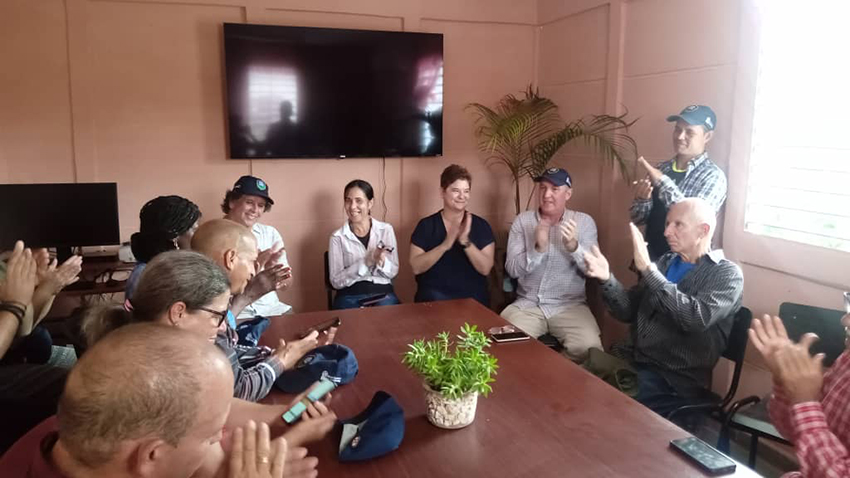
The workshops involve policy decision-makers, natural resource managers, local leaders, producer families, entrepreneurs, specialists from the Ministries of Tourism, Agriculture, Education, and Higher Education, as well as municipal and provincial government authorities.
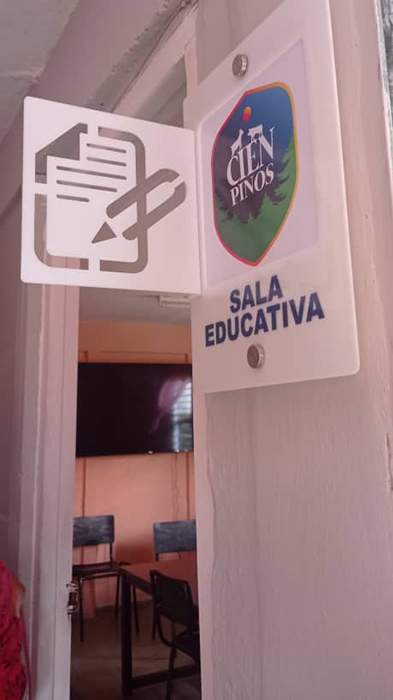
As part of the sessions, visits are made to production farms and other sites with landscape, cultural, and tourist values that synergize both for their unique identity values and for the pig and goat breeding systems to enhance the value of products derived from their use.
During the visit to Viñales, Ulrika Helena Ahmark, representative of Swedish Cooperation, donor of the CIENPINOS project, inaugurated the first of the eight educational rooms that will be put into operation in the context of CIENPINOS.
"May these rooms be a place where knowledge and exchanges among everyone can flourish for a better common future," Ulrika pointed out at the opening.
The rooms were equipped with modern technology donated by CIENPINOS, with the purpose of strengthening and developing the existing capacities and new knowledge that will be generated in the municipalities.
Accountability
During the first workshop, Tania Sánchez, director of the CIENPINOS project in Cuba, presented the 2023 annual report, which detailed the results achieved in the first year of the project's implementation, as well as the work plan for the 2024 period.
In this regard, Ismael Hernández Venereo, international coordinator of the CIENPINOS project, assured that there is a good working atmosphere and coordination among everyone, from the Municipal University Centers (CUM) to the provincial authorities.
Eduardo Somarriba, scientific director of the CIENPINOS project, expressed that this will be a year where work with universities, training, and communication will be very important, which was demonstrated in the first workshop.
With the initial assessments of the identified capacities, the stage is set to delve deeper into studies on how to develop agribusinesses taking advantage of the productive systems of pigs and Creole goats; a contribution from CIENPINOS to sustainable food production and local development.
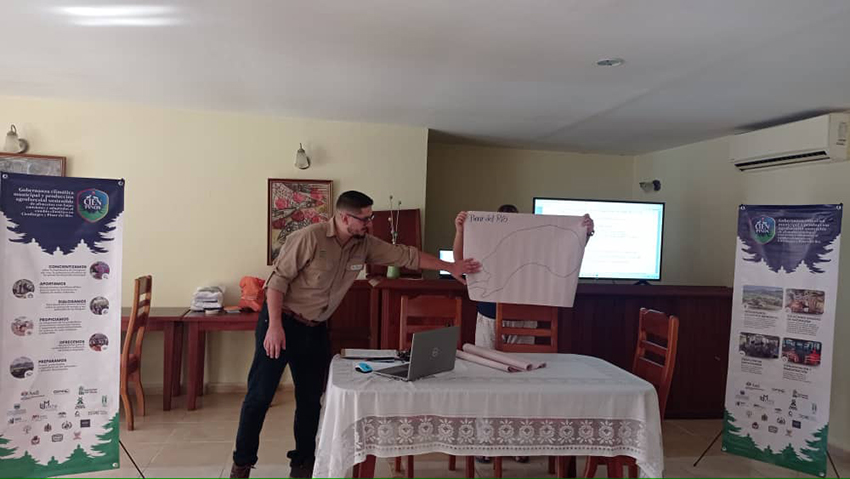
More information:
Ismael Hernández Venereo
International Coordinator
CIENPINOS Project
Ismael.hernandez@catie.ac.cr
Written by:
Raúl Isidrón Pichs
Journalist and Communicator
CIENPINOS Project
raul.isidron@73gmail.com

